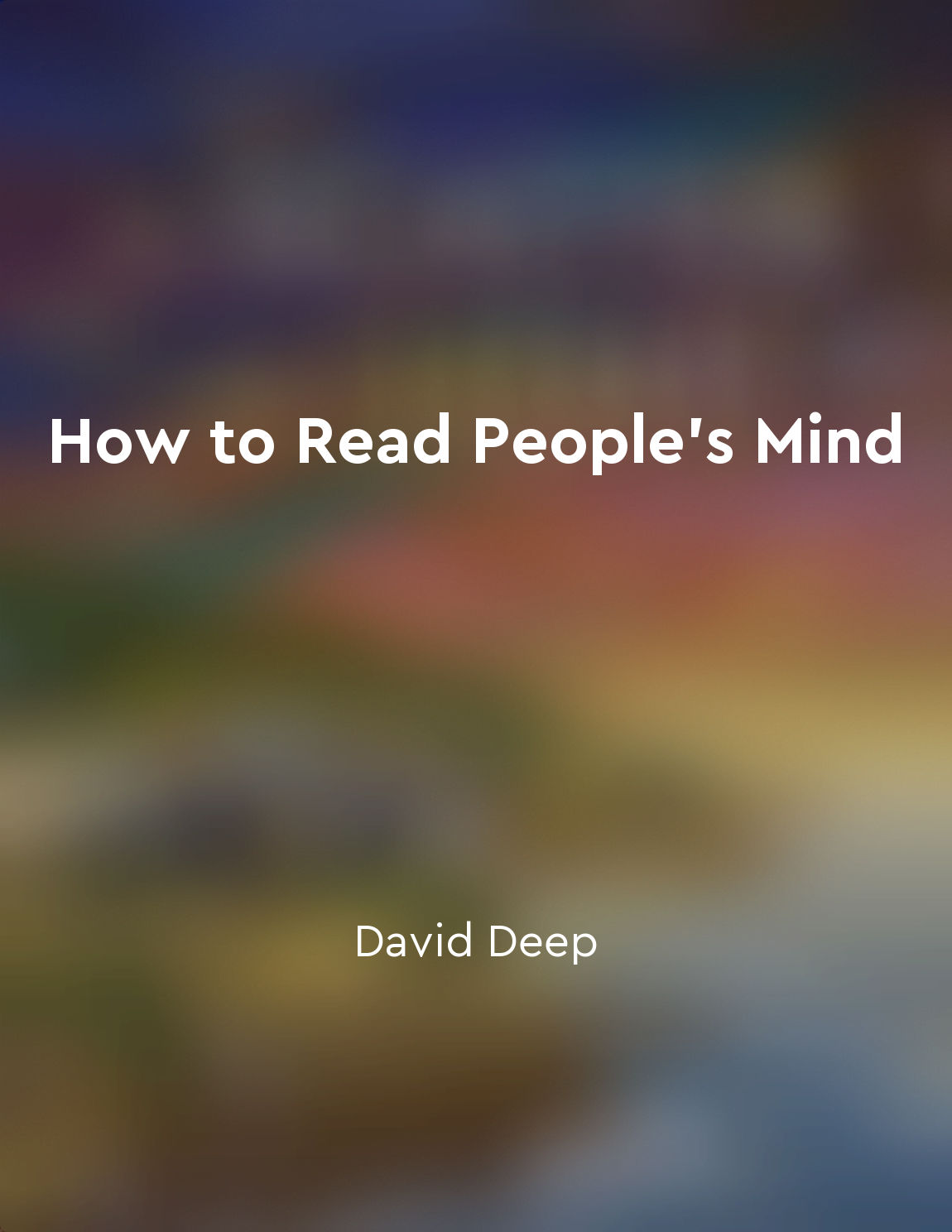Analyze verbal cues for hidden meanings in conversations from "summary" of How to Read People's Mind by David Deep
Verbal cues are a powerful tool when it comes to deciphering the hidden meanings behind someone's words. These cues can provide valuable insights into a person's true thoughts and feelings, even when they are not explicitly stated. By paying close attention to the words that are used, as well as the tone and inflection with which they are delivered, you can uncover a wealth of information that may have otherwise gone unnoticed. One of the most important things to look out for when analyzing verbal cues is inconsistencies in a person's speech. These inconsistencies can often reveal when someone is being less than truthful or when they are trying to hide something. For example, if someone says they are feeling fine but their voice trembles as they speak, this misalignment between their words and their tone may indicate that they are actually feeling anxious or upset. Another key aspect of analyzing verbal cues is paying attention to the specific words that are chosen. Certain words and phrases can carry hidden meanings or convey underlying emotions that may not be immediately apparent. For instance, if someone repeatedly uses negative language when discussing a particular topic, this could indicate that they have unresolved issues or negative feelings associated with that subject. In addition to the words themselves, it is also important to consider the context in which they are used. The setting, the relationship between the speakers, and any nonverbal cues that accompany the words can all play a role in shaping their true meaning. By taking these contextual factors into account, you can gain a more comprehensive understanding of what is being communicated beneath the surface.- Analyzing verbal cues for hidden meanings in conversations requires a keen eye and a careful ear. By paying attention to inconsistencies, word choice, and context, you can uncover a wealth of information about a person's true thoughts and feelings. This skill can be invaluable in both personal and professional settings, allowing you to better understand those around you and navigate social interactions with greater insight and empathy.
Similar Posts
Ask openended questions to encourage further dialogue
The way we ask questions during a conversation can have a significant impact on the depth and quality of the dialogue. Open-end...
Build rapport through genuine connections
To truly connect with others, you must be genuine in your interactions. People can sense when you are being insincere, and this...
Using humor judiciously can lighten communication
Humor is a powerful tool in communication. It has the ability to break the ice, ease tension, and create a sense of connection ...

Be confident in your communication
Confidence is the key to successful communication. When you are confident in yourself and your abilities, it shows in the way y...
Pay attention to cultural differences when engaging in small talk
When it comes to small talk, it's crucial to be aware of cultural differences. What may be considered appropriate or interestin...
Posture reflects confidence or insecurity
When it comes to communication, our posture plays a significant role in how others perceive us. Whether we realize it or not, o...
Refrain from jumping to conclusions and seek clarification before making judgments
Before you make any judgments about someone, it's crucial to avoid jumping to conclusions. When we jump to conclusions, we make...
Handle criticism constructively to improve communication
Criticism is a part of life, especially when it comes to communication. It is how we handle criticism that can truly make a dif...
Demonstrate reliability and dependability
To establish a strong connection with others, it is crucial to exhibit reliability and dependability. When people perceive you ...
Reflecting on past experiences can enhance communication skills
In their book 'Why Men Don't Have a Clue and Women Always Need More Shoes', Barbara and Allan Pease discuss the importance of r...


